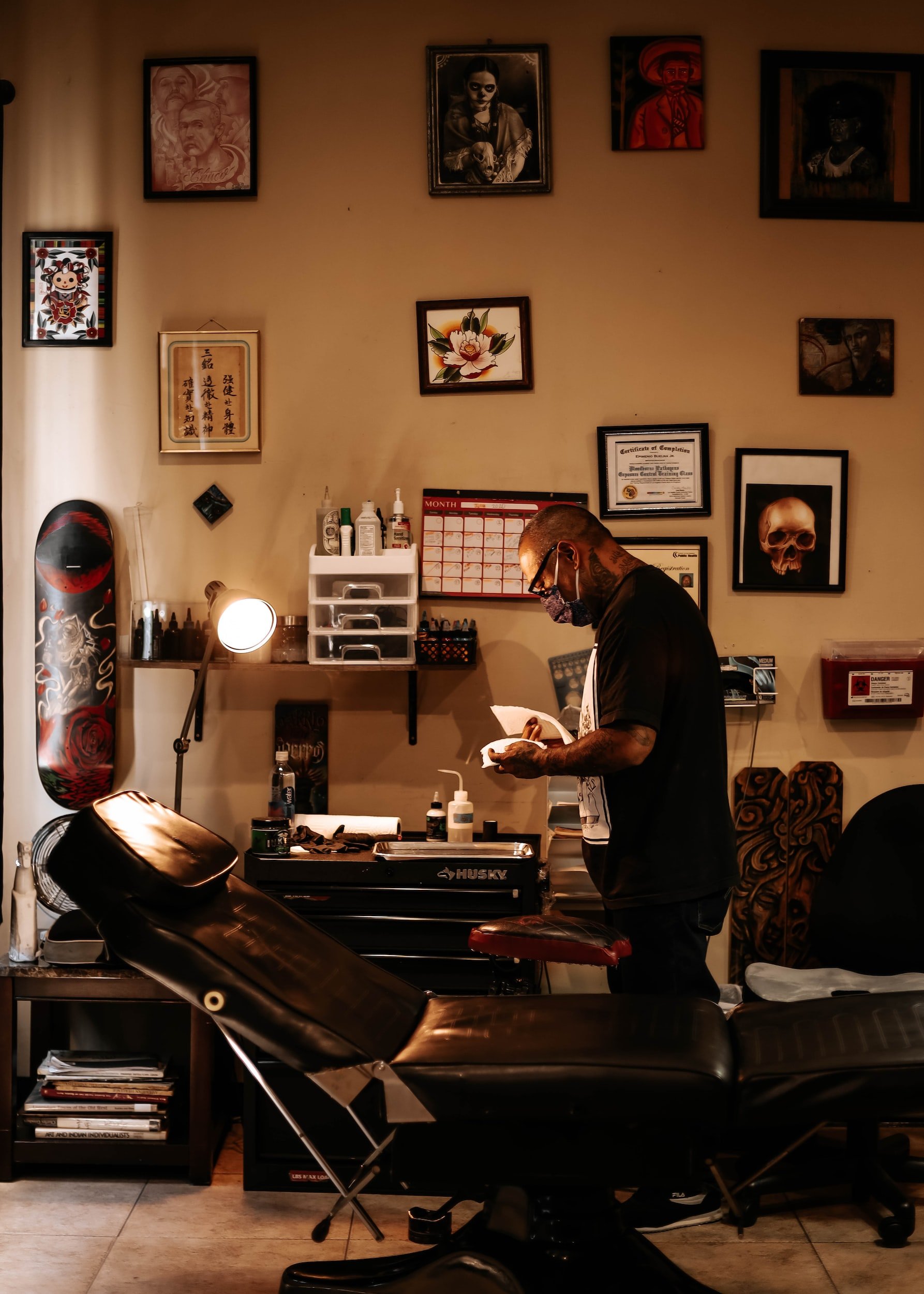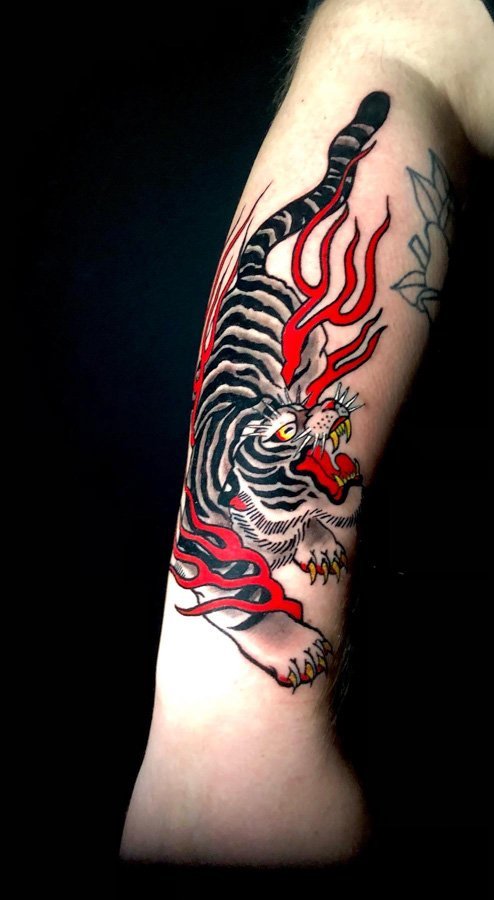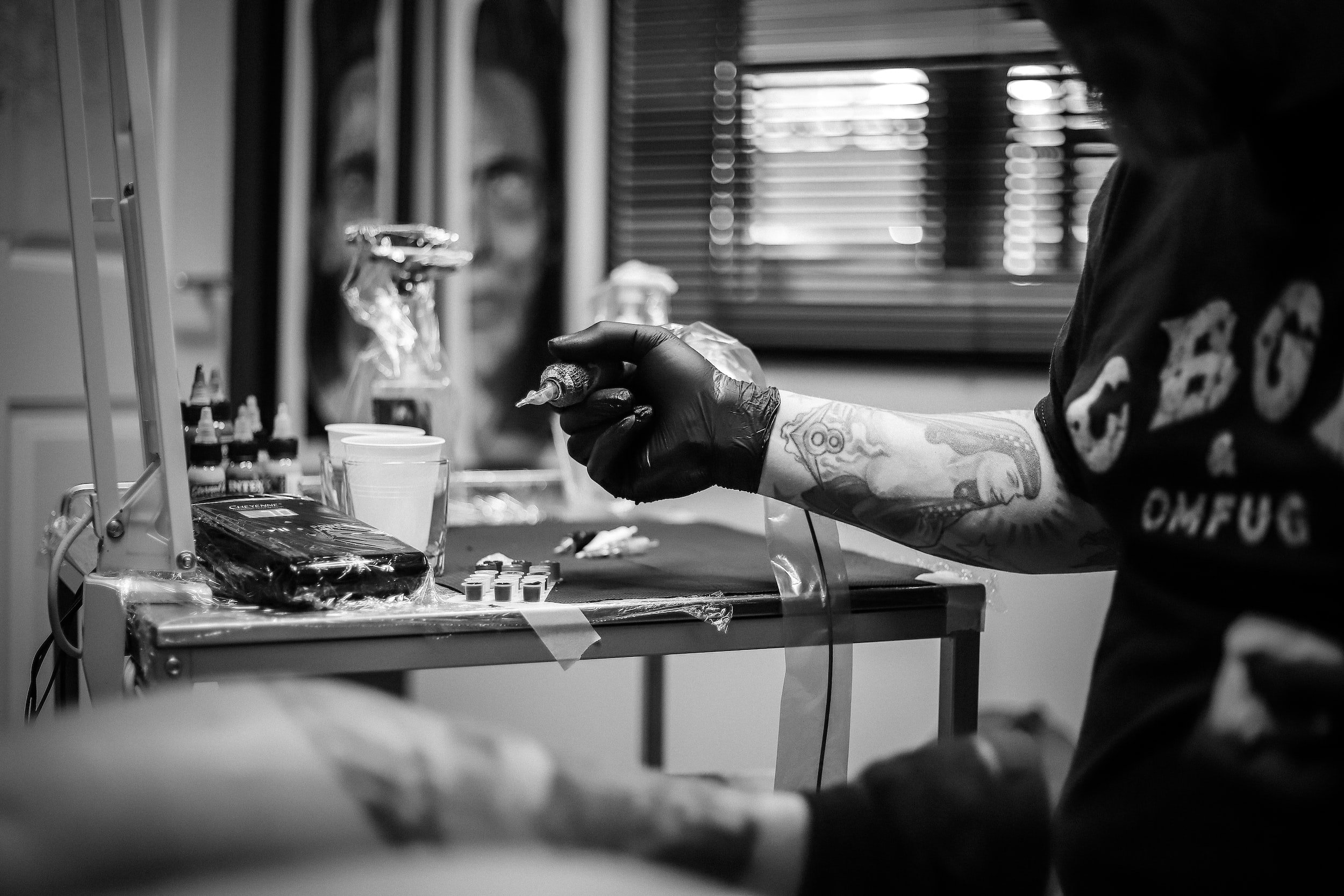Tattoo Shops | Finding the Perfect Artist & Important Tips for A Great Design
We all know that tattoos are more popular than ever, and with good reason. Whether you're looking to express yourself, commemorate a milestone, or just add a little edge to your look, tattoos are a great way to make a statement.
But, let's be real, finding the right tattoo shop and artist can be a daunting task. With so many options out there, it's hard to know where to start! That's why we're here to help you navigate the world of tattoo shops and parlors, and find the perfect artist to bring your vision to life.
What to Look for in a Tattoo Shop
Tattoos are a beautiful way to express yourself and create a piece of art on your body. However, before you get your dream tattoo, there are some important things to consider. One of the most crucial things to keep in mind is finding the right tattoo studio to trust with such a personal and permanent piece of body art.
When looking for a tattoo studio, it’s essential to prioritize cleanliness and hygiene standards. Ensure that the studio you’re considering is clean, tidy, and sterile to avoid infections or complications post-tattoo. Health and safety should always be a top priority, so be sure to select a tattoo studio that takes these matters seriously.
Another essential factor to consider when choosing a tattoo shop is the expertise and Custom tattoo Art Style of the artist. Take a look at the artist’s portfolio and style to make sure their aesthetic aligns with yours. Check out their work on social media and their website as it will give you a great idea of their skills and talents. You can also look for reviews and customer feedback to get an idea of their consistency and quality of work.
When it comes to finding certified tattoo studios, it’s essential to choose a shop that has all the necessary licenses and certifications. Well-established tattoo studios usually have clear visibility of these documents, showcasing their professionalism and commitment to legal compliance. Always ask for their certifications before getting a tattoo so you can be sure that you’re working with a legitimate and safe establishment.
Make sure to check the availability of consultations, especially if it’s your first tattoo. A good tattoo studio will offer consultation services to help clients choose the best tattoo that matches their preferences and style. Moreover, you can also voice any concerns or questions you may have about the procedure during these consultations, providing you with peace of mind and a better understanding of the process.
Finding the Perfect Tattoo Artist
Finding the right tattoo artist is the key to getting that masterpiece you have been dreaming of. Whether you are a first-timer or a seasoned tattoo enthusiast, you want to ensure you are working with a skilled and experienced professional who can bring your vision to life. Here's how you can find the perfect tattoo artist.
Research is the key to finding the perfect tattoo artist. Start by browsing through tattoo parlors in your area and checking out their portfolios and social media. This will give you an idea of the artists' styles and expertise. The internet is an excellent tool for finding a tattoo parlor and artists near you. A simple Google search will give you a list of local tattoo shops to choose from.
When browsing through an artist's portfolio, pay attention to the details. Look for crisp and clean lines, smooth shading, and solid colors. Check for consistency in the artwork and see if they have experience in the style you're looking for. It's important to match your design idea with the right artist as everyone has their own specialty.
Once you have chosen your top options, schedule a consultation to discuss your design ideas and preferences. This initial meeting will allow both you and the artist to get to know each other and ensure you are on the same page. During the consultation, be honest about what you want, and ask the artist for their professional opinion. A good artist will listen to your ideas and offer suggestions for improvement or alternative designs.
Experience and professionalism are also important factors to consider when choosing a tattoo artist. Experienced tattoo artists have a better understanding of how to work with different skin types, textures, and colors. They also have a proven track record of delivering quality work, which can be seen in their portfolio. Professionalism is key, from the initial consultation to the follow-up care instructions. A professional tattoo artist should make you feel comfortable, answer all your questions, and provide you with aftercare information to ensure proper healing.
Important Tips for a Great Design
If you're thinking about getting a tattoo, one of the most important things to consider is the design and placement. After all, it's going to be with you for a long time, so you want it to be just right! That's why we've put together some important tips for a great tattoo design that will not only make your tattoo look amazing but will also help you avoid any health concerns or allergies.
It's essential to discuss any health concerns or allergies you may have with your tattoo artist. This way, they can ensure that the ink they are using is safe for you and won't cause any adverse reactions.
Next, be clear about your vision and expectations for the tattoo. The more specific you can be about what you want, the better. This will help the artist create a design that matches your vision perfectly.
You'll want to choose something that has some personal significance to you when it comes to the design itself. This could be anything from a favorite quote, a special date or even a beloved pet. The possibilities are endless!
It's important to trust the artist's expertise and recommendations. They will have years of experience and will be able to offer valuable insights into what will work best in terms of color, size, and placement.
When it comes to tattoo places, it's crucial to choose a reputable tattoo parlor with experienced artists who use safe and hygienic practices. Make sure to do your research beforehand and read reviews from previous customers to ensure that you are making the best possible choice.
ADditional Factors to Consider
There are several factors to consider beyond just the design and skill of the artist. In addition to ensuring that the shop is reputable and adheres to proper sanitization practices, there are a few other important factors to take into consideration.
First and foremost, it's essential to consider the location and accessibility of the tattoo shop. A shop that's out of the way or difficult to get to can be a major inconvenience, especially if you're planning on getting a larger piece that requires multiple sessions. Consider whether there's ample parking nearby, whether the shop is easily accessible by public transportation, and whether it's in a safe neighborhood.
Another important factor to keep in mind is the cost and pricing structure of the tattoo shop. While it's important not to compromise on quality when it comes to your tattoo, it's also important to ensure that the shop is within your budget. Some shops may charge a flat rate, while others may charge by the hour or by the size of the tattoo. It's important to get a clear idea of the pricing structure beforehand to avoid any surprises.
In addition to the actual tattoo, many shops also offer additional services such as touch-ups and aftercare products. Touch-ups can be important to ensure that your tattoo looks its best for years to come, while aftercare products such as ointments and lotions can help to promote healing and prevent infection. Be sure to ask about these additional services when considering a tattoo shop.
But do tattoo shops take credit cards?
For those who prefer to use credit cards or other forms of payment, it's important to find out whether the tattoo shop accepts credit cards. Many shops today do accept credit cards, but it's always best to check beforehand to avoid any surprises at the time of payment.
When considering all of these factors together, it should be easier to find a tattoo shop that meets your needs and provides a high-quality, safe, and enjoyable tattoo experience. Don't be afraid to ask questions, do your research, and take your time when choosing the right shop for you.
Frequently ASKED questions
-
A: The cost of a nose piercing at a tattoo shop can vary depending on factors such as the location, the reputation of the shop, and the experience of the piercer. However, on average, a nose piercing can cost anywhere from $30 to $300, including the cost of the jewelry. It's important to choose a reputable and experienced piercer to ensure a safe and successful piercing.
-
A: The general rule of thumb is to tip your tattoo artist 20% of the total cost of the tattoo, similar to tipping in other service industries. However, the amount you choose to tip ultimately depends on factors such as the quality of the work, the level of service provided, and your personal satisfaction with the experience. Some people may choose to tip more or less depending on these factors. It's always best to consider your budget and your level of satisfaction with the service before deciding on a tip amount.
-
A: Naming your tattoo studio can be a fun and creative process, but it's important to choose a name that accurately represents your brand and attracts potential clients. Here are some tips to help you name your tattoo studio:
1. Consider your target audience: Think about the type of clients you want to attract to your studio and choose a name that will resonate with them.
2. Reflect your style: Your tattoo studio's name should reflect the style of tattoos you specialize in. If you specialize in traditional tattoos, consider a more classic name. If you specialize in modern tattoos, consider a more edgy name.
3. Keep it simple and memorable: A simple and memorable name is easy for clients to remember and recommend to others.
4. Research other tattoo studios: Look at the names of other tattoo studios in your area and make sure your name stands out from the competition.
5. Make it legal: Make sure the name you choose is available and not trademarked by someone else.




